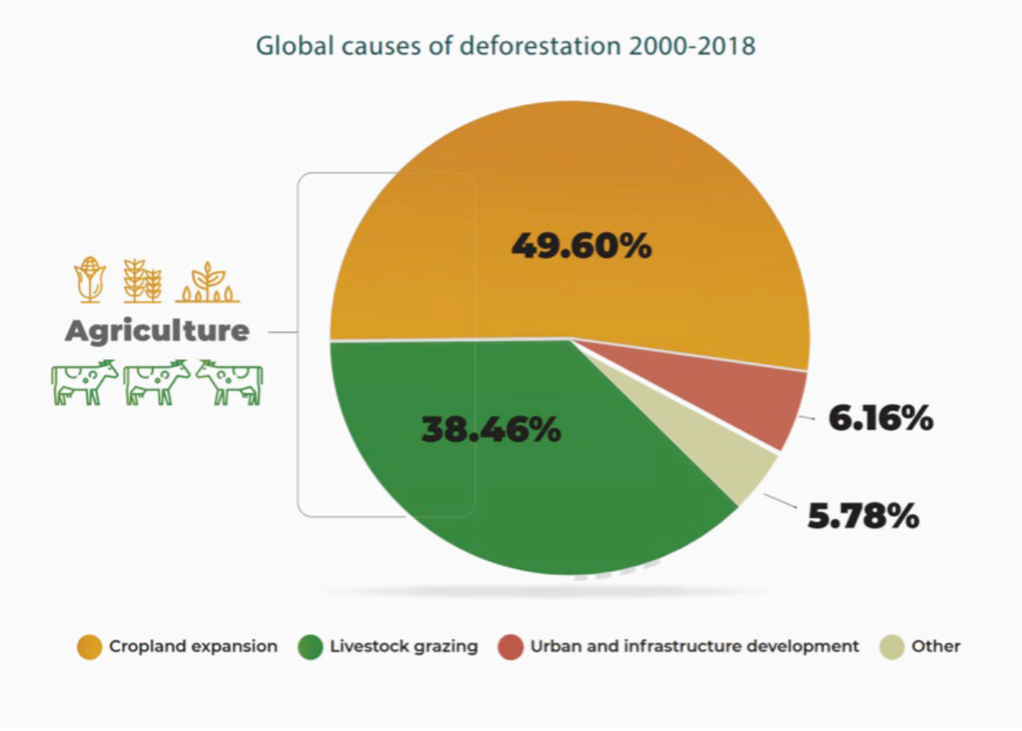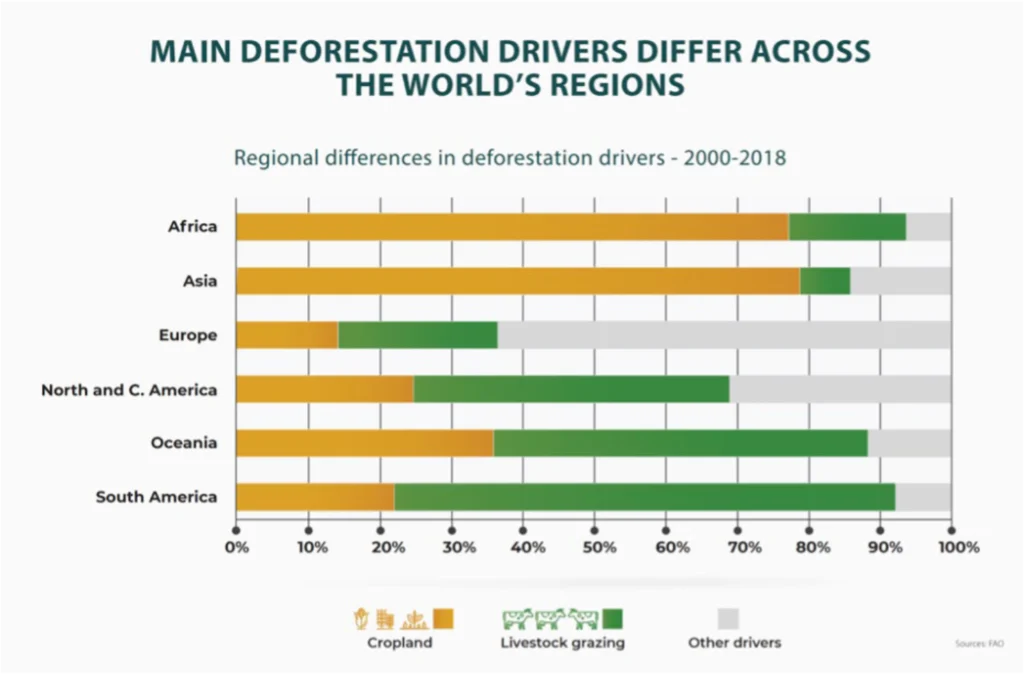Mission
Food and Sustainability
The food system, which describes how we collectively produce, process, transport, consume, and manage waste from food, is responsible for about one-third of all greenhouse gas emissions. It is also the most significant driver of biodiversity loss (70%) on land, with agriculture being the leading identified threat to 86% of global species facing extinction. The UN Food and Agriculture Organization (FAO) states that crop expansion (49.60%) and livestock grazing (38.46%) were the leading causes of global deforestation over ten years (2000-2018). This trend was true for the African region where more than 75% of forest was converted to cropland over the same period. The Global Land Outlook Second Edition indicated that about 40% of our planet’s land is degraded due to multiple drivers, such as climate change, deforestation, overcultivation, overgrazing, and rapid urban population growth.


The challenge facing smallholder food producers
Akwamu-Kwanyarko: Confronting the Interwoven Challenges of Food Insecurity, Youth Unemployment, and Poverty
Akwamu-Kwanyarko is found in the Asuogyaman District in Ghana’s Eastern Region. The District boasts a vibrant population of 101,256, as recorded in the 2021 National Population and Housing Census. Kwanyarko village, flanked by the neighboring communities of Nnudu and Aboasa, enriches the region with 3,000 residents.
Agriculture stands as the backbone of this community’s economy, engaging over 60% of its inhabitants in vital activities such as crop production and livestock rearing. Yet, the farming landscape is largely dominated by smallholder operations that find themselves increasingly susceptible to the relentless forces of climate change, which threaten food security, nutrition, and livelihoods. Unsustainable practices—such as bush burning and deforestation—are wreaking havoc on the land, leading to soil infertility and degradation. The primary crops cultivated include maize, cassava, plantain, yams, and peppers, with women playing an indispensable role in the crucial post-harvest processes.
The 2024 Ghana Statistical Service Multidimensional Poverty Report reveals a sobering reality: over 20% of the population lives in multidimensional poverty, with a staggering poverty degree of 43.1%. Those laboring in agriculture struggle more than their counterparts in other sectors, reporting a 3.4% greater degree of hardship compared to those engaged in industry. Unemployment looms large as a pressing issue, with 14.7% of the population facing this daunting challenge. Alarmingly, poverty is more pronounced among female-headed households, affecting 26.6% compared to 18.8% for male-headed ones. Moreover, young individuals aged 15 to 19 bear the heaviest burden, with a staggering 63.0% of such households trapped in the grip of poverty.
In the face of these intertwined challenges, Akwamu-Kwanyarko stands at a crossroads, beckoning support and innovative solutions to reshape the futures of its resilient people.
What is our solution?
Since 2020, WildRain has passionately dedicated itself to transforming the food and farming landscape in the Kwanyarko community with impactful, grassroots solutions! By nurturing both the land and its people, we are enhancing farmer resilience against climate change, boosting crop productivity, and increasing incomes while restoring biodiversity and regenerating soil for healthier yields.
